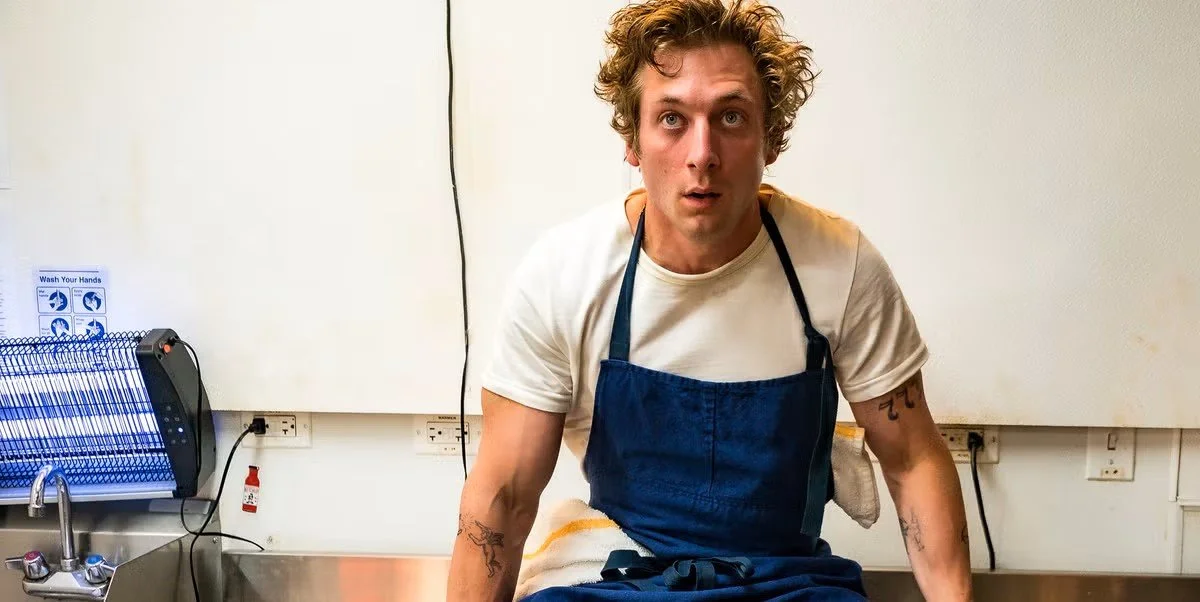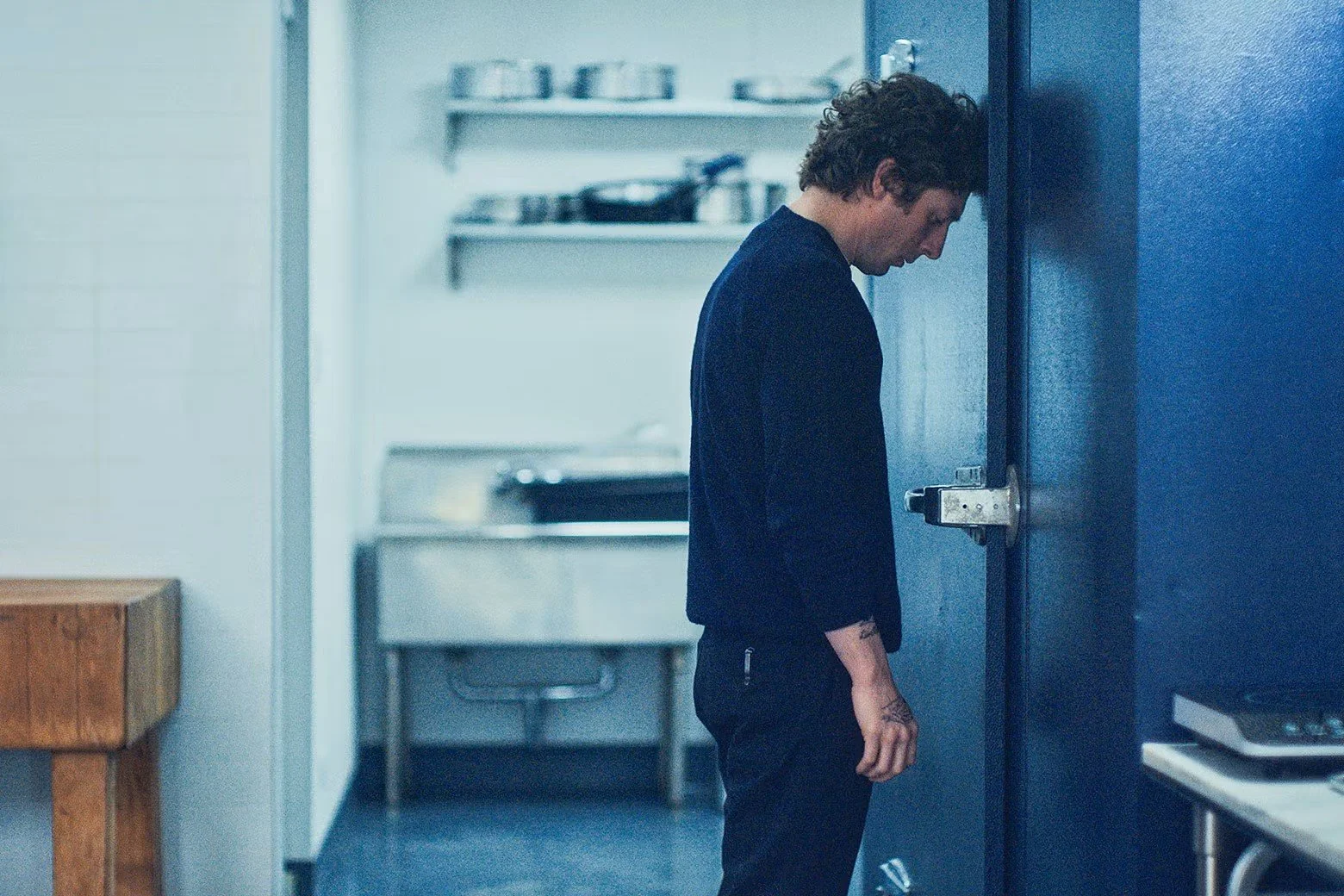The Bear: A Reflection on the Beauty and Burden of Creativity
The Bear, where chaos meets creativity, and every dish tells a story.
The Bear, the show everyone is obsessed with (at least, I am) is entering into its fourth season next year. It’s no exaggeration to say that it has captured the hearts—and stomachs—of audiences. As both a therapist and a lover of great storytelling, I find The Bear to be a fascinating study—it’s a masterclass in narrative brilliance and a deeply human exploration of creativity, trauma, and relationships.
The Bear is a rare show that immerses viewers in the relentless, chaotic, and deeply human world of creativity. At its center is Carmen "Carmy" Berzatto, a prodigious fine-dining chef who returns to Chicago to salvage his late brother's struggling sandwich shop. What follows is a high-octane exploration of the creative process—its moments of transcendence and its grueling cost. Through Carmy, The Bear examines the tension between passion, perfectionism, and personal well-being, resonating deeply with those who understand the sacrifices and triumphs of a creative life.
The Creative Genuis Under Pressure
Carmy represents a familiar archetype: the tortured genius. His talent is undeniable—honed through years in Michelin-star kitchens and fueled by an obsessive pursuit of perfection. But with that talent comes an almost unbearable weight. The pressure to be the best consumes him, creating a cycle of self-imposed isolation and emotional turmoil.
Carmy’s creative brilliance is inextricably tied to his troubled past. The loss of his brother, Michael, casts a shadow over his every action, filling the shop with unspoken grief. On one hand, this pain is the source of his drive; on the other, it’s a wound he carries into every relationship, every decision, and every dish. His past experiences in high-pressure kitchens—places where abuse and mental strain were normalized—have taught him that creativity is born from suffering, a lesson he now wrestles with as he rebuilds his life.
The Kitchen as a Metaphor for the Creative Process
The kitchen in The Bear serves as a powerful metaphor for the creative mind. It’s a space of chaos and order, collaboration and conflict, destruction and creation. The constant buzz of activity reflects the mental state of an artist at work: ideas clashing, fears surfacing, perfectionism driving each choice.
Carmy’s kitchen, however, is not a sanctuary—it’s a battlefield. His perfectionism alienates his team, while his unrelenting standards push him to the edge of burnout. Yet, amidst the chaos, there are moments of extraordinary beauty: a perfectly crafted dish, a fleeting moment of connection, or a shared laugh in the midst of turmoil. These moments capture the essence of why creatives endure the struggle—they remind us that art, in its truest form, has the power to transcend pain.
Creativity and the Troubled Past
Carmy’s story also highlights the way unresolved trauma can fuel creativity while simultaneously threatening to destroy it. His brother’s death and their fraught family dynamics serve as an emotional undercurrent to everything he does. He is haunted by questions of worth—whether his art will ever be enough to justify the pain, whether he himself is enough.
In one poignant scene, Carmy admits that his drive for success in fine dining wasn’t purely about passion—it was about proving something to his brother, to his family, and to himself. This reveals a truth many creatives grapple with: the intersection of external validation and internal struggle. How much of our art is about connection, and how much is about trying to heal the unhealed parts of ourselves?
True creativity thrives not in the absence of struggle, but in the presence of balance—where passion is nurtured, not consumed, by the weight of perfection.
The Sacrifice of Personal Relationships
One of the most heartbreaking aspects of Carmy’s journey is the impact his creative obsession has on his personal relationships, particularly with his girlfriend. Though their connection is genuine and there is a clear bond between them, Carmy’s inability to prioritize the relationship over his work leads to its quiet disintegration. His need to control and perfect everything in his professional life leaves no room for vulnerability or reciprocity in his personal life.
This sacrifice reflects a common theme among creatives: the struggle to balance the demands of their art with the needs of their relationships. Carmy’s story reminds us that when creativity consumes everything, it risks leaving nothing for the people who matter most.
The Peril of Perfectionism
Carmy’s relentless pursuit of perfection is another key theme. For him, good is never good enough. A sandwich isn’t just a sandwich—it’s an opportunity to achieve something extraordinary. Yet this same perfectionism isolates him, creating a wall between himself and the people who could support him.
The show forces viewers to ask: Is the cost of perfection worth it? Can the creative mind learn to find satisfaction in the imperfect, or must the pursuit of greatness always come at a price? Carmy’s journey doesn’t offer simple answers, but it does reflect the struggles faced by countless creatives who walk the tightrope between inspiration and exhaustion.
The Human Side of Creativity
At its core, The Bear is not just about food—it’s about people. It’s about the relationships that shape our creativity and the way our work shapes our relationships in turn. Carmy’s interactions with his team highlight the dual nature of creative collaboration: it can be deeply fulfilling but also fraught with tension. His attempts to honor his brother’s legacy through his work are touching yet tragic, as they often leave him emotionally paralyzed.
The show masterfully portrays the humanity of the creative process—the late nights, the breakdowns, the fleeting moments of joy that make the struggle worthwhile. It captures the beauty and the cost of art, forcing viewers to consider whether the two are inherently linked.
Creativity: The Eternal Question
The story of Carmy and The Bear invites a broader contemplation:
Is it possible to be a creative genius without sacrificing joy and connection? Or is the act of creation destined to demand pain and pressure as its price?
Carmy’s journey reminds us that creativity is not a simple equation. While struggle and trauma can fuel extraordinary art, they are not its only sources. With intention, reflection, and support, it is possible to create from a place of abundance rather than depletion. The question is not whether art must come from suffering, but how we can honor our creative impulses without losing ourselves in the process.
(See the strategies below to help creative professionals navigate this balance.)
The Bear captures the essence of the creative struggle with brutal honesty, yet it also opens a door to reflection. While the pressure to create beauty often feels overwhelming, there is a path where joy, connection, and creativity coexist. The challenge for any creative professional is to reimagine that balance—not to abandon the drive for greatness, but to pursue it without sacrificing one’s own humanity in the process. If you find yourself struggling with the pressures of creativity, perfectionism, or balancing your passions with your well-being, schedule a consultation today to explore how therapy can support your journey.



